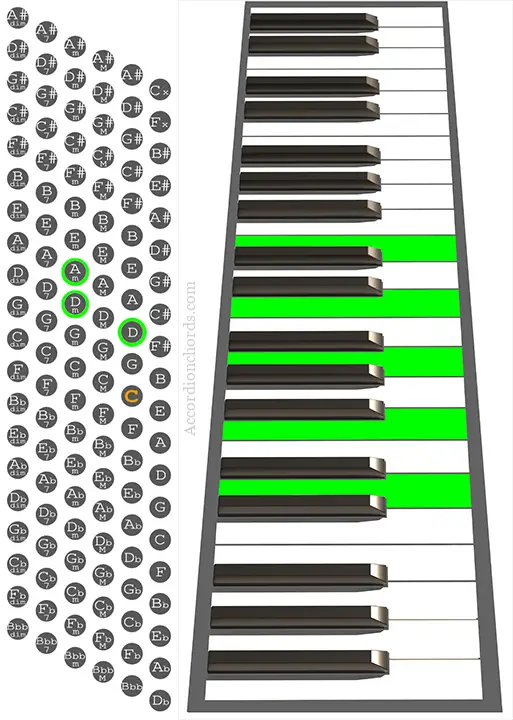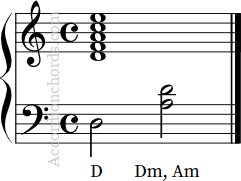AKA: D-7(add9), D-7/9, D Dominant minor 9th, D Dominant minor ninth, Dm7/9, Dm9, Dm7(add9), Dmin7(add9), Dmin7/9, Dmin9, D minor7/9, D minor9
Dm9 Accordion Chord Chart

m9 Chords
It’s a five-note chord that consists of a root, a minor 3rd, a perfect 5th, a minor 7th, and a major 9th. To build a minor 9th chord, you can also stack intervals on top of each other: a minor 3rd, a major 3rd, a minor 3rd, and a major 3rd.
For example, a Cm9 chord consists of the notes C (root), Eb (minor 3rd), G (perfect 5th), Bb (minor 7th), and D (major 9th) and its intervals are a minor 3rd (C to Eb), a major 3rd (Eb to G), a minor 3rd (G to Bb), and a major 3rd (Bb to D).
These chords are commonly used in jazz music to add some extra color to a chord progression. I love using them in my own playing and I think you should give them a try too. They sound great and can really add something special to your music.
m9 Chords on Accordion
On a standard bass accordion you can play m9th chords by combining a root and/or its minor chord, with the minor chord built on its 5th degree.
For example, in the key of C, the fifth degree is G. To play a Cm9 chord, you would play the C minor chord (C, Eb, G) and the G minor chord (G, Bb, D). This creates a Cm9 chord made up of the notes C, Eb, G, Bb, and D.

Notes:
D, F, A, C, E
Intervals:
R, m3°, 5°, m7°, 9°
Left hand:
D + Dm + Am
Fingering:
4 + 3 + 2